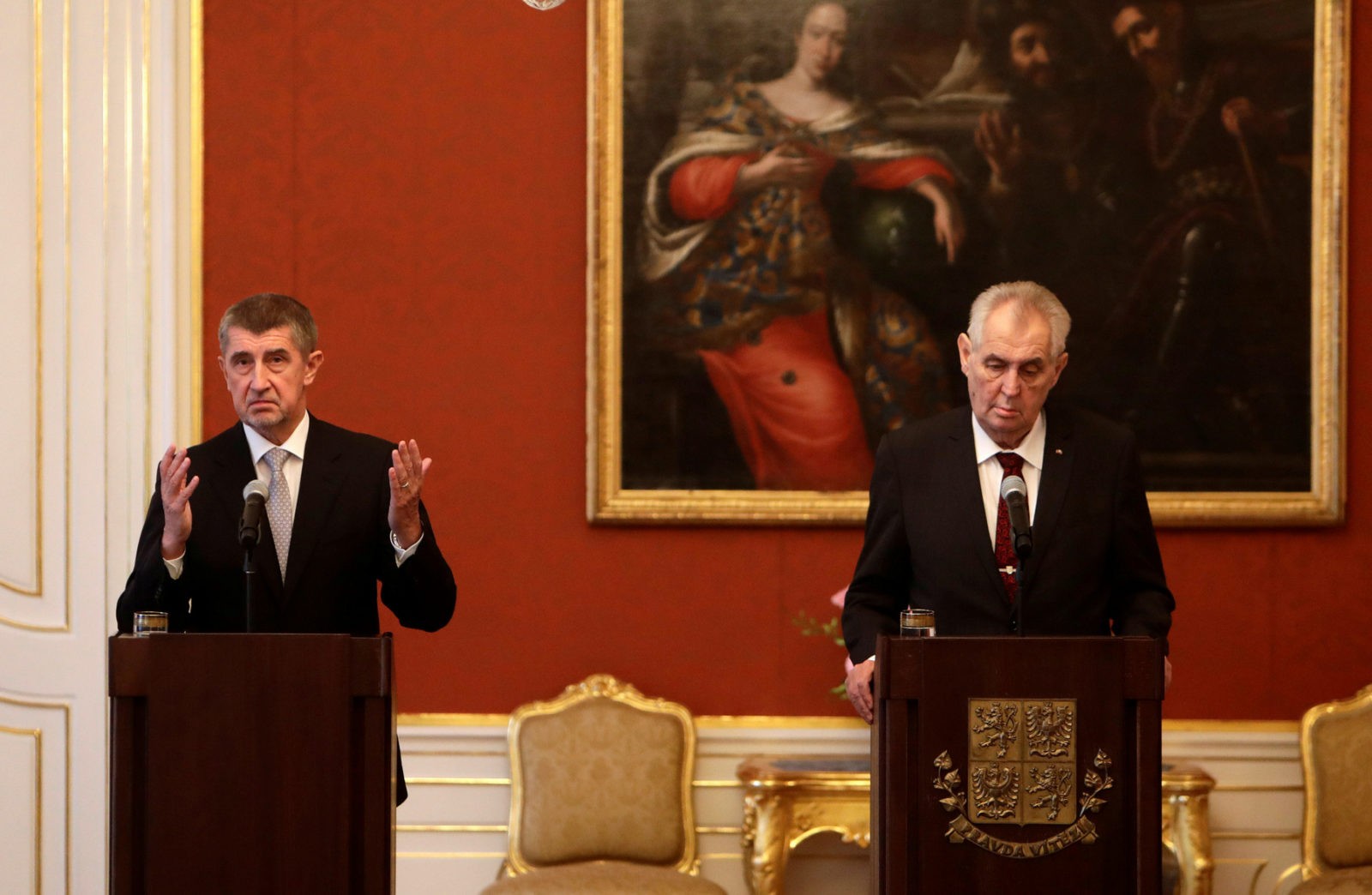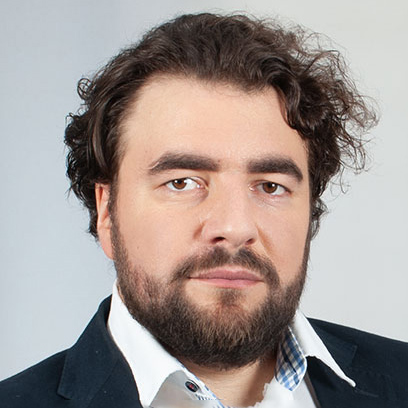The Czech Republic is a member of the European Union and NATO, but differences in opinion between the current authorities and Brussels are prompting a search for strong alternative partners. President Miloš Zeman, praised by the Kremlin, has turned east and is going on a trip to China. Prime Minister Andrej Babiš organised a trip to the US with the help of new, young Foreign Minister Tomáš Petříček. Donald Trump received Babiš personally; the two former businessmen seem to be fond of each other. The Czech Republic may soon join the Baltic states and Poland in focusing more on Washington than on Brussels.
Torn between East and West
The Czech Republic is a unitary parliamentary republic. Foreign policy is mainly shaped by the government, but the country is also traditionally represented abroad by the president. This tradition dates back to Václav Havel, probably the best-known Czech politician in the world. Zeman takes advantage of these powers. He is sometimes at loggerheads with the government, since he does not hide his desire to work with Russia and China, making frequent visits.
In late April, Zeman was on his fifth visit to China. Once again he encouraged greater Chinese investment into the Czech economy, which he described as ‘extremely low’. In November 2017, he brought a delegation of 140 Czech businessmen to Russia in the hope of promoting economic ties. He noted that the number of entrepreneurs who went to Russia was about 10 times those interested in a trip to France.
Even at the level of Babiš, the government is much more cautious when it comes to contacts with potential partners from the East. The prime minister does not have good memories of China. He says his late 2018 visit to the Chinese embassy in Prague was misread by Chinese diplomats assuming he had come to apologise. They presumed an apology was due because of the Czech authorities’ reaction to the worldwide Huawei scandal. The Chinese state-aligned telecoms giant had been accused of trying to get illegal access to data stored and transferred by users of the telecoms equipment it makes.
Memories of Russia are not good, either, for Babiš. A scandal last year in the Czech press related to an interview with Babiš’s son, who is wanted by Czech police as a witness in a case of alleged misappropriation of European small-business subsidies by the prime minister’s company or family. Babiš junior claimed at the time that he was kidnapped to Russia and forced to stay in annexed Crimea.
The scandal has gradually died down, while relations with China have gradually improved. The government, though, remains cautious. At the same time, relations with the European Commission and EU leadership as well as the European Parliament are complicated. The ‘Stork Nest’ scandal, a major developer’s project subsidised by the EU as a small business venture, has had repercussions. EU auditors and Czech police see a conflict of interests and suspect misappropriation. This is because in reality the facility was part of Babiš’s business empire. Moreover, the Czech Republic is reluctant to accept EU migration projects, aligning itself with Euroskeptic governments. Czech society opposes the ‘EU dictate’ (a slogan used by populists such as Tomio Okamuro’s ‘Freedom and Direct Democracy’ party, which is campaigning alongside Marine Le Pen and Matteo Salvini in the European Parliament election campaign).
At the same time, Russia and China are traditionally perceived negatively by the Czechs. The attitude towards the US is more positive. Polls show Vladimir Putin is trusted by as few as 19% of the Czechs and distrusted by as many as 67%. Donald Trump can boast the same result (20% vs. 68%). When it comes to Xi Jinping, 6% of Czechs trust him versus 30% who distrust him – because 52% have no idea who he is.
Close friendship in the making?
It’s little wonder that Babiš has attempted to befriend Trump’s America. Petříček, the foreign minister, took a major step in organising the visit and promoting this idea. He did so in close step with representatives of the Czech business seeking to enter the giant American market.
Petříček replaced Miroslav Poche, an MEP whose candidacy for foreign minister was blocked by Zeman. The Social Democrats (the coalition party that nominated Poche) and the parliamentary opposition say the president interpreted his powers rather broadly, but he got his way. It was then that Petříček was suggested as a provisional, ‘technical’ head of the Ministry of Foreign Affairs, with Poche as his advisor.
Few expected great activity and independence from a young diplomat. In fact, some quietly suggested he would be a puppet carrying out Poche’s orders. On the contrary, Petříček has turned out to be supposedly the most pro-Brussels member of the cabinet. At the same time, he took a tough stance towards Russia and China. The Foreign Ministry began a domestic dispute over the status of several residential buildings occupied by the Russian Embassy. It got involved in a dispute with China over Huawei’s operations in the Czech Republic. It pushed back at attempts by Chinese diplomats to interfere with Czech entrepreneurs in Taiwan. Petříček is engaged in supporting various American initiatives and promoting the Czech Republic as a suitable place for their implementation in Europe. One initiative is a conference on disarmament with the participation of Trump, Putin and Xi. However, it’s unlikely to happen anytime soon.
Finally, Petříček’s diplomatic efforts resulted in Babiš’s visit to the US. The prime minister felt comfortable since both he and Trump are former businessmen. Though Babiš is much richer than his American counterpart (which was eagerly noted by the Czech press).
The meeting did not generate impressive economic or even political dividends. Neither multi-billion-dollar investments nor promises of alliances were articulated. However, this is only the first step by the Czechs. To use Trump’s favourite metaphor, Babiš offered ‘a great deal’ and the ball is now in Washington’s court.
Babiš has acknowledged the potential benefits from a closer partnership with the US. It could all give him greater room for manoeuvre within the EU. The Czechs may even try to push Poland aside and become the Americans’ main Central European partner. Not only in the area of civil society support, as they are now, but also economically (which should be a major priority for former businessman Babiš).
Most probably, 2019 will show whether the Czech offer has been accepted. This may be visible in a variety of signs, including large investments, trade deals or international conferences in Prague attended by Trump, not to mention the strengthening of NATO military cooperation. Such signals would mean the Czech Republic is being considered as America’s main partner in the region.
For Russia, this would mean that during political disputes with the EU leadership, Prague could start provoking Brussels and Berlin not by turning eastwards, but by appealing to the US. Back in 2016, Babiš was deliberating whether the country really needed the transatlantic Alliance. Now, similarly to Poland, the Czech Republic could ask the Americans to open a military base there. It is noteworthy that Zeman did not shy away from meeting Trump. A looming foreign policy turnaround by Babiš could make the president reconsider his stance. Of course, he would also want to see some personal gains.
So far, Prague’s reorientation towards the US is only one possible vector of Czech foreign policy. It is, though, perhaps the most interesting turn to make, given Russian-American as well as American-Chinese confrontation and growing Euroscepticism in the EU.










